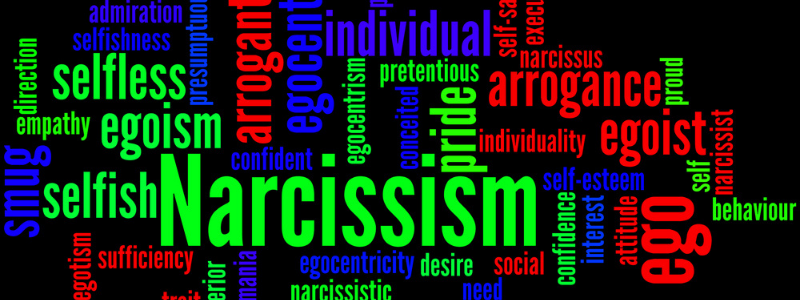What does a narcissistic friendship look like? I am here to tell you it’s not your fault-healing from a narcissistic friendship is tough but you are strong and I know you can do it. But first, let’s help you get a better understanding of what all this is and why were you targeted?
Friends, just what does that word mean? It is people who care for each other and hurt each other and makeup and move forward. It is a lot like a marriage. But friends are not usually together all the time as a partner would be.
How can we help you?
Find out more information about our
exclusive private Facebook group.
Did you notice above how I mentioned that friends also hurt each other? We are only human, and no two are alike, so we are bound to hurt or anger each other if we are friends for a long time.
But in this article, I am talking about a dysfunctional Narcissistic friendship, and I will repeat throughout that “it’s not your fault.”
What Is A Friend?
But functional friends talk it out and build each other up. They are helpful and supportive.
Sometimes we run into a situation where one of the friends has no emotion or ability to feel, love, or be kind unless it benefits them only.
The disorder for this type of person is known as a narcissist or NPD (Narcissistic personality disorder.) Yes, there is a name for it, and they are everywhere. I mean in all nationalities, all walks of life, and yes, in your community. Do you know who they are? I doubt you do unless you were trampled by one.
Did A Narcissist Trample You?
I bet I get a lot of head nods here. Here is a great time for me to tell you that it’s not your fault. Many of you have encountered a narcissist in your lifetime; if you have not, then you are one lucky soul.
I am speaking from experience and have studied the NPD. I was married to an NPD, and I have a very close family member married to one. Because of this, I felt the need to learn all I could to help others get free of the abuse.
I am a good judge of character, but the one who can fool me is a narcissist. It took me a long time to figure out why. They believe what they are saying, and think what they are doing is for the good of themselves. So, to see through them is impossible until they take their mask off.
Not only that but getting away from a narcissistic person is only the beginning. They go out of their way to bring you back into the fold of their abuse. They want to use you and see if they can get you back to treat you like the scum they believe you are. It’s not your fault they are this way.
As we move on, I want to tell you again that it’s not your fault what the narcissist does to you. Healing from a Narcissistic relationship is a life-long process and requires help.

What Does A Narcissist Do?
A narcissist will harm others to get all of the attention. They will go to great lengths, including lies, to make you appear threatening so they can look better. A narcissist has no sense of right and wrong. So you see it’s not your fault, really! They will make up lies about you to get the attention of others.
Traits of a Narcissist, Their Beliefs To See That It’s Not Your Fault
- Believe they are the most crucial person in the world
- Believe they are superior without ever accomplishing anything
- Believe they are entitled
- Believe that it’s not their fault
- Believe that everyone admires them
- Require excessive attention
- Believe they are successful, brilliant, and influential even if they live on the street
- Believe the world is a fantasy waiting to accommodate them
- Believe other people are here to take advantage of to meet their needs
- Believe that others have no feelings
- Believe that everyone envies them
- Believe they deserve the best of everything money can buy
- Believe that they are intelligent and superior and show it in their haughty and arrogant manner
- Believe they will get unquestioning devotion from everyone
- Believe they are above the law
WOW, now this is a very long list, and I am sure it is not conclusive. But on this list, you have to see that it’s not your fault. You are being manipulated. What you see is a person who is self-centered, vain, emotionless, and inflicts pain on others because it will serve only them. Usually, the purpose is to get attention and appear superior. After all, no one is as good as they are.
How Can You Tell Who Is A Narcissist?
I am going, to be honest with you here. It is almost impossible to know who is one and who is not until the narcissist bites you.
When you get pulled into the fold of a narcissistic person, you believe you have found your soul mate. As a friend, you think that you must be twins from another mother. They are on a path to make it all look like you are at fault, but it’s not your fault. They planned all of it, down to the last second.
They will mimic your actions and desires not because they think you are a wonderful person but because they believe they deserve to have people on a chain to make themselves look better.
You are what we call their new “supply.” You supply them with all they need to boost their insecurities. You help them cope. Not in a functional way but by putting you down. It’s not your fault because you are the victim.

How Does a Narcissistic Person Treat a Friend?
I am speaking of a friend here because that was my most recent encounter. A narcissist can be a spouse, a mom, a dad, and a sibling. As I said earlier, they are everywhere.
Narcissist Are And Will:
- Lash out in anger
- Are impatient with everyone
- Have fits of rage and put others down
- Are above criticism and have to save face when criticized
- Blame everyone else and make it all your fault
- Want to be perfect
- Are insecure
- Cannot deal with stress
- Cannot control their emotions
Does this sound like someone you know? I bet that wasn’t the person you met when you decided they were the perfect friend. It’s not your fault because they set out to make you the victim and feed their needs.
It’s Not Your Fault!
You are a well-rounded person with a family and a wonderful husband. So how did you become friends with such a controlling person?
Your friend did not target you because you are weak or lacking. No, it was because you have a good life and are a strong person. It is like they want to siphon from you all the goodness you show. It makes them feel like they are perfect, although they know they are not.
Also, they find it a challenge to control a strong person. You know what you want. You raise your kiddos with integrity, and you are an upstanding citizen. The narcissist knows they lack these traits and want to degrade you to feel like they are superior. From the moment they met you, everything that happens to them becomes your fault. At this point, healing from the narcissistic friendship has become more difficult. They have already sucked you in.
Because you are upstanding and well thought of, the narcissist wants everyone to see them with you. They want to look good. But when you are alone, they will degrade you and control who you are.
It all begins slow and quiet. Mimicking who you are in the beginning to make you believe it is a perfect friendship. Then they will say small things to make you feel bad about your life. Like telling you that your loving husband is not helping you enough. Or that you need to work because staying home with the kids is not suitable for you.
Yet later, they tell you that you need to leave your husband because he is terrible to you or he is seeing someone else. The lies never stop. All in an attempt to control your happiness and make you turn to them more.
Then one day, you decide you have had enough, which is the worst thing you can do to a narcissist. They no longer have control over you. But wait, or do they. You have spent so long listening to their lies; you don’t know what to believe anymore. Their manipulation has you all tied up in knots, and healing from the relationship or stepping away from it is nearly impossible.
You wonder what happened and why did this friendship go bad. It has to be your fault, or at least that is what your “NPD friend” tells you.
So, you spend endless days worried about what you did with no word from that person. One day two months later, they text you and want to get together—no word about why you haven’t heard from them. Your NPD friend is in your head because you can’t stop thinking about them and are worried that you did something. When they do call, they are sure to tell you that it was your fault that they have not called. But please remember it’s not your fault. It’s all about blaming someone else for their shortcomings.
You miss your friend, so you set a lunch date. They are so kind and loving that you must have made it all up. You are now back in the fold of control and hatred.
Soon it all starts over, so you call it quits again. This time you talk to some friends about the relationship, and they tell her what you said. You just criticized a narcissist. Criticism makes them feel small, and no one is going to put them down. Remember, that person believes they are superior and above reproach, and no one will change that.
But at the same time, insecurity is at the root of the whole problem, and they need to be perfect. You have just made it known that the issues lie with the narcissist.
Can you see where I am going with this situation? You are in the dog house with the narcissist, and they will do whatever it takes to make you look bad so they can feel better. They will make up lies about you and tell others. When it comes back to you, you are devastated and wonder again if it is your fault. NO, it’s not your fault!
What you read here is a fictitious scenario. I am not writing about any particular situation but rather all narcissistic relationships in general.

Does It Ever Get Better?
There are very few narcissists who actually get help and see a counselor; therefore, they are never diagnosed with NPD. They will never improve because they believe there is nothing wrong with them. They have convinced themselves that they contributed to the friendship in a positive way.
For you, it is a troublesome situation. You hear all of the things they are saying, and they may even stalk you or try to scare you. Remember, you are strong and well thought of, and because of this strength, you can break free. You can heal from this narcissistic friendship. You can break free and it’s not your fault.
The only way to completely break ties is to never ever respond to a narcissist. When you reply to a text or a phone call, you are giving them what they want. You are their “supply” again. The only real way to heal from a narcissistic friendship is to break all contact. And many have to talk about it and get counseling to realize they were manipulated and that it’s not your fault.
How Hard Is It To Stay Quiet?
The narcissist will try to be kind, but when this does not work, they will say and do things to push your buttons. When they make you angry, you feel a need to defend yourself. DO NOT fall for this old trick. Block their number, their Facebook profile, and any other method they may use to reach you.
The only way to have peace amid narcissistic control over your life is not to respond. You did not cause this, and you can not fix it. It’s not your fault. I do know you will worry. That person manipulated you into believing that you were the problem. You were not the issue! You just happened to be targeted by a very sick person who spends all of their time attempting to harm others to better themselves.
I do hope this helps you see that you are not the problem. The person who has tried to make you believe this is very sick. I am not suggesting you feel sorry for them. A narcissist has the same ability and choices as we all do. They, too, can get help if they choose. But rarely do they make that choice.
What I have written here is a generalized example of how a situation may progress. You may not have experienced the exact scenario, but it may help you relate to the pain of a narcissistic friendship.
The bottom line is that it’s not your fault. You were a victim of a narcissistic friendship, and you can heal from this. Many counselors understand that you feel guilty and that the narcissistic friendship broke you down. They know how to help you, so don’t feel ashamed to seek help with your healing process.



